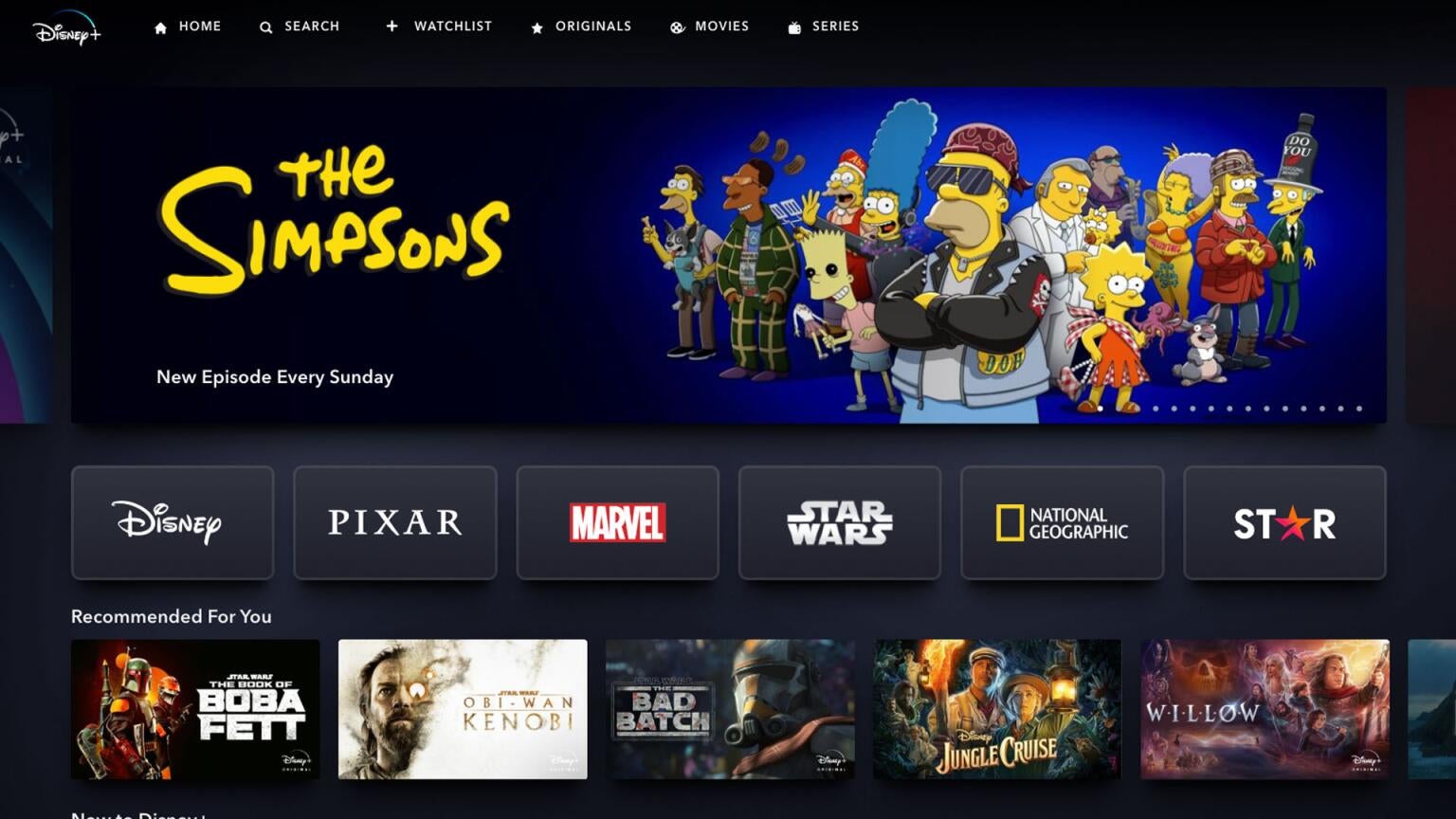Disney Has the Biggest Library of Desirable Titles as Licensing Becomes Increasingly Important in Streaming Survival
Disney Has the Biggest Library of Desirable Titles as Licensing Becomes Increasingly Important in Streaming Survival
Disney’s catalog contains the highest number of titles that other streamers might find desirable, according to new data from Ampere Analysis.

As gigantic legacy media companies find that the old ways of doing business don’t pay the way they used to, they are realizing that keeping their franchises walled up on their own proprietary streaming services isn’t necessarily the best practice any longer. Exclusivity of content was great for attracting new subscribers, but investors on Wall Street are not solely concerned with subscriber totals any longer, and now streamers are realizing that easy money is there for the taking if they license some titles to other outlets. New data from Ampere Analysis is quantifying which streamers have the most licensing power available to them, and unsurprisingly Disney has come out on top.
- Disney has 148 desirable titles for potential licensing in its library, more than twice as many as the studio with the next-highest number.
- Netflix would be an excellent licensing partner for Disney, as many non-Disney streaming subscribers are signed up with Netflix.
- Warner Bros. Discovery, AMC and other studios have been ramping up their licensing efforts lately.
Get Disney+, Hulu, and ESPN+ for just $16.99 a month ($14 savings).
Which Streamers Have the Most Licensing Power?

Ampere took a hard look at the titles currently being licensed by media companies to other streaming services to identify the most desirable qualities of those shows and movies. Using that analysis, Ampere then applied the criteria to current streaming libraries from Disney, Paramount, Warner Bros. Discovery, and NBCUniversal to determine which had the most license-able titles in their lineup.
Disney is head-and-shoulders above the competition, with 148 titles that other streamers would like to license, according to Ampere’s formula. Paramount Global comes in a distant second with 72 such titles, followed by Warner Bros Discover (54 titles) and NBCUniversal (47 titles). Disney carries a large portion of comedy and kids/family titles in its catalog, which is why it ranks so highly amongst its competitors, as these genres are highly desirable among those looking to license.
Click image to expand.
Disney has already signaled a willingness to increase the amount of titles they license to others, though executives have stressed that key franchises like Marvel and Star Wars will remain exclusive to Disney streamers. Disney’s stock price has slid far in recent years, and while the company expects its streamers to turn a profit by the end of 2024, it’s been a long and hard road to streaming success for the company.
Which Licensing Partners Would Be Best for Disney to Pursue?

Ampere’s data also gives insight into which partners Disney should look to team with when licensing its content. Netflix is an obvious choice as the world’s largest streaming service, and indeed Disney recently licensed 14 shows to stream on Netflix non-exclusively. Ampere’s numbers reinforce the wisdom of this decision, as 44% of customers who don’t subscribe to Disney+ have a Netflix account. Forty percent of customers who don’t subscribe to Hulu are also Netflix subscribers, which shows that customers outside the Disney streaming ecosystem are most likely to turn to Netflix over other services.
Click image to expand.
WBD’s recent licensing deal with Netflix showed how such agreements could be good for both companies involved. Engagements for the titles licensed by WBD to Netflix rose on that streamer and on WBD’s service Max, and considering how many subscribers who aren’t signed up with a Disney streamer are using Netflix, Disney could stand to gain the attention of millions of viewers who have never seen the licensed titles in question before.
Licensing older titles can create such a passionate audience that the rights holder can decide to reignite the franchise in question. That’s exactly what has happened with NBCU’s “Suits”; after an explosion of popularity on Netflix, the producers are now at work on a spin-off series that will (presumably) be available to stream on Peacock.
“We expect more licensing deals for high profile titles to be struck in 2024 between major VoD providers,”
said Ampere analyst Rahul Patel. “Studios’ strategies will need to carefully balance exclusivity and non-exclusivity to ensure their streaming offerings are distinct and compelling while also maximizing the value of their content as it moves to a second window. Licensing can expand the audience for existing assets, extend shelf life and at the more successful end of the scale, inspire franchise expansion. This was the case with NBCUniversal when it commissioned a ‘Suits’ spin-off following its success on Netflix. Such an approach is particularly beneficial in the current climate when commissioners are being increasingly cautious with their content spend.”
Licensing is going to become more and more common as streaming providers chase enhanced profitability. AMC has found success with this strategy, and other major studios are not shy about getting in on the game. According to Ampere, Disney has the greatest number of desirable titles for licensing, and it has already begun to take advantage of its largesse in this regard.
-
Disney+
Disney+ is a video streaming service with over 13,000 series and films from Disney, Pixar, Marvel, Star Wars, National Geographic, The Muppets, and more. It is available in 61 countries and 21 languages. It is notable for its popular original series like “The Mandalorian,” “Ms. Marvel,” “Loki,” “Obi-Wan Kenobi,” and “Andor.”
-
Hulu
Hulu is a video streaming service that gives access to thousands of full seasons of exclusive series, hit movies, kids shows, and Hulu Originals like “Only Murders in the Building,” and “The Handmaid's Tale.”




